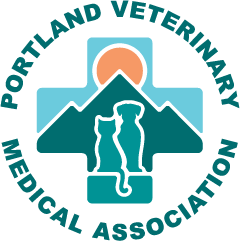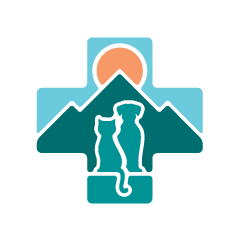PVMA Member- Code of Conduct and Community Agreements
We are dedicated to our veterinary community and the elevation of the profession.
New Title
PVMA Code of Conduct
The PVMA Code of Conduct and Community Agreements, as summarized below:
a) Be supportive of your colleagues, both proactively and responsively.
b) Be inclusive.
c) Be collaborative.
d) Be generous in both giving and accepting feedback.
e) Be kind.
PVMA Community Agreements
Goal
To establish a set of principles and practices of the PVMA that will provide guidance and direction for professional and personal conduct.
Agreement
Members of the PVMA are committed to observing and promoting the highest standards of ethical conduct in the participation of this professional membership organization. Members pledge to accept these agreements as minimum guidelines for ethical conduct and shall review and understand the following.
Community Principles
Every member of the PVMA is expected to be considerate of their colleagues and contribute to a collaborative, positive, and healthy environment in which we can all succeed. Specifically:
- Be supportive of your colleagues, both proactively and responsively. Offer to help if you see someone struggling or in need of assistance (taking care not to be patronizing or disrespectful). If someone approaches you looking for assistance, be generous with your time or help direct them to someone else who may be of assistance.
- Be inclusive. Go out of your way and across cultures to include people in conversations; we want to build an environment free of cliques. Avoid slang or idioms that might not translate across cultures, or be deliberate in explaining them to share our diverse cultures and languages. Speak plainly and avoid acronyms and jargon that not everyone may understand. Be an ally to a colleague when you see a need. When introducing yourself to someone, offer your pronouns and do your best to remember and use the proper pronouns for others.
- Be collaborative. Involve your colleagues in group activities. Don’t succumb to either impostor syndrome (believing you don’t deserve to be here) or the Dunning-Kruger Effect (thinking you can do no wrong).
- Be generous in both giving and accepting feedback. Feedback is a natural and essential part of our culture. Good feedback is kind, respectful, straightforward, constructive, and focused on goals and values rather than personal preferences. You are expected to give and receive feedback with gratitude and a growth mindset. Recognize that in addition to asking for feedback, you are similarly obligated to give it.
- Be kind. Be polite and friendly in all forms of communication – especially remote communication, where opportunities for misunderstanding are greater. Avoid sarcasm. Tone is hard to decipher online.
Collective Commitment
The PVMA is committed to providing a welcoming and safe environment for all. Discrimination and harassment are expressly prohibited. Furthermore, any unwelcoming behavior or language—whether or not it rises to the level of harassment—is also strongly discouraged.
Additionally, there are a host of behaviors and language common in the veterinary field which are worth noting as specifically unwelcome:
- Understand if a colleague isn’t familiar with something: At the PVMA, we believe in the value of a beginner’s mind. It’s always acceptable to say “I don’t know” or “I don’t understand.” All questions are great questions! Avoid expressions of surprise when people aren’t familiar with a disease, concept, medication, treatment, person, place, or process. This applies to both technical things (“What?! I can’t believe you don’t know what the __ is!”) and non-technical things (“You don’t know who __ is?!”).
- Consider exclusionary language: Be careful in the words that you choose, even if it’s as small as choosing “hey, everyone” over “hey, guys.” Sexist, racist, ableist, and other exclusionary jokes are inappropriate and will not be tolerated under any circumstance. PVMA understands that what constitutes exclusionary language is constantly changing; therefore, if the language is used unintentionally and pointed out, be respectful, correct the error and continue on.
- Be aware of microaggressions and gaslighting: Much exclusionary behavior takes the form of microaggressions or “subtle-isms”– small things that make others feel unwelcome. For example, saying “It’s so easy my grandmother could do it” is a subtle -ism with tones of both sexism and ageism. Regardless of intent, these comments can negatively impact teammates. If you see a subtle -ism, you can point it out to the relevant person, publicly or privately, or ask a board member to say something.
Gaslighting is the use of manipulative language that makes another question their reality or the validity of their thoughts and feelings. It includes comments like “What I said wasn’t sexist!” or “That’s not what they meant. You’re being too sensitive.” Similarly, avoid “piling on” someone who made a mistake. It’s okay to mess up – just apologize and move on.
Reporting a problem
These guidelines are ambitious, and we’re not always going to succeed in meeting them. When something goes wrong—whether it’s a microaggression or an instance of harassment—you can do several things to ensure the situation is addressed.
1. Recommended: Talk to a board director or officer. We take concerns seriously. We are here for you to discuss the problem, and we will figure out what steps to take next. You can make a report either personally or anonymously. We’re keen to hear concerns about situations of any size and magnitude. In all cases, we will make every effort to stay in clear communication with anyone who reports a problem, maintaining confidentiality as much as possible.
2. Address it directly. For more minor incidents that might be settled with a brief conversation, you can choose to discuss with the other party how it affected you directly. Please use this approach only if you feel comfortable; you do not have to carry the weight of addressing these issues yourself. If you’re interested in this option but unsure how to go about it, try discussing it with the PVMA board of directors first—they will have advice on making the conversation happen and can join you in a conversation.
For additional information about the PVMA's commitment to Equity, Diversity, and Inclusion, as well as resources and learning opportunities, please visit:
https://www.portlandvma.org/edi
Membership Options
Together we make a difference.
NEW MEMBER VETERINARIANS
Veterinarians licensed for over a year. Prorated dues rate will be automatically calculated during registration October-July
$295/YEAR
NEW GRADUATE VETERINARIANS
Those who have graduated from veterinary school in the past 12 months.
$35/YEAR
ACADEMIC & RESEARCH VETERINARIANS
For veterinarians that have been licensed for over a year and who work in an academic or research/laboratory setting.
$160/YEAR
VETERINARY
STUDENT
All veterinary students currently enrolled in an AVMA-accredited veterinary program encouraged to join! Proof of program enrollment required.
NO COST
If you need an invoice created for your Company before payment or need to purchase multiple memberships, please complete this form.
*All membership dues are collected on an annual basis.

